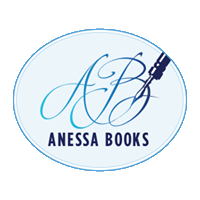 I’ve been learning a good deal recently about writing journal and writing planners. There’s a difference!
I’ve been learning a good deal recently about writing journal and writing planners. There’s a difference!
A planner is a book where you have pre-designed organizing tools, like in my favorite Ultimate Author Planner by Audrey Hughey. In her planner, Audrey has calendar pages, as well as pages for planning out your blog posts, newsletters, even your publications—you can plan out each one a year in advance. She’s got pages for writing down your monthly goals and for accounting for them at the end of the month. It’s a great tool, but it’s a planner meant to help you organize and plan out your writing business.
A journal, on the other hand can be something as simple as a notebook with lined paper and absolutely nothing else. They’re meant to be a place for you to write down your thoughts and ideas. It’s one step up from a notebook in that it’s prettier and sometimes has a place for the date at the top. Some journals comes with pretty pictures or inspirational sayings as well to move you or help you to write your thoughts and, I suppose, feelings.
Recently, to help me with my writing, I’ve been using a writing journal which I created in a spiral notebook. At the top I write the date and how many words I wrote that day. Below I write what I accomplished (what scene(s) I wrote) and then write what I’m going to do the following time I sit down to write so that when I do so I can just read through my notes and know exactly where I am in my story and can get writing quickly.
Naturally, I realized right away that I had to create something like this for my coaching clients! Which, of course, meant that I had to create it for the world. 😊
I threw in my “Getting Started” worksheet and a couple of Character Examination Worksheets and BOOM! I’ve got a writer’s journal for anyone to use to keep track of their novel. Oh, okay, I also put in inspirational quotes, one for every day, because I love them.
The thing, though, with planers and journals I’ve discovered is that different people will use them in different ways. This is fine, but it does mean that I had to write an introduction to my journal to tell people how to use it. The sad part is that I doubt anyone will read it (I never read those things… I buy a journal, I just want to start writing in it). So, I think I’ll keep the intro for those who do read them and add my usual tl;dr section.
So, what do you think? Do you use a journal to keep track of your writing? Wouldn’t you love to have a place where you can easily jot down what you did that day and what you’re going to do the next time you sit down to write? One place where you can keep all your thoughts and ideas on your current work-in-progress.
Because Amazon only does regular paperback books, I’m publishing this first on Amazon, but then I’m also going to publish it through Lulu where you can get the same thing only in a spiral bound book. I can’t wait!! It’s going to be so cool! Sorry, geeking out about spiral bound books.
Might you consider getting your own copy of this journal? If so, here’s the link to the Amazon version and the Lulu version will be coming very, very soon, promise!
